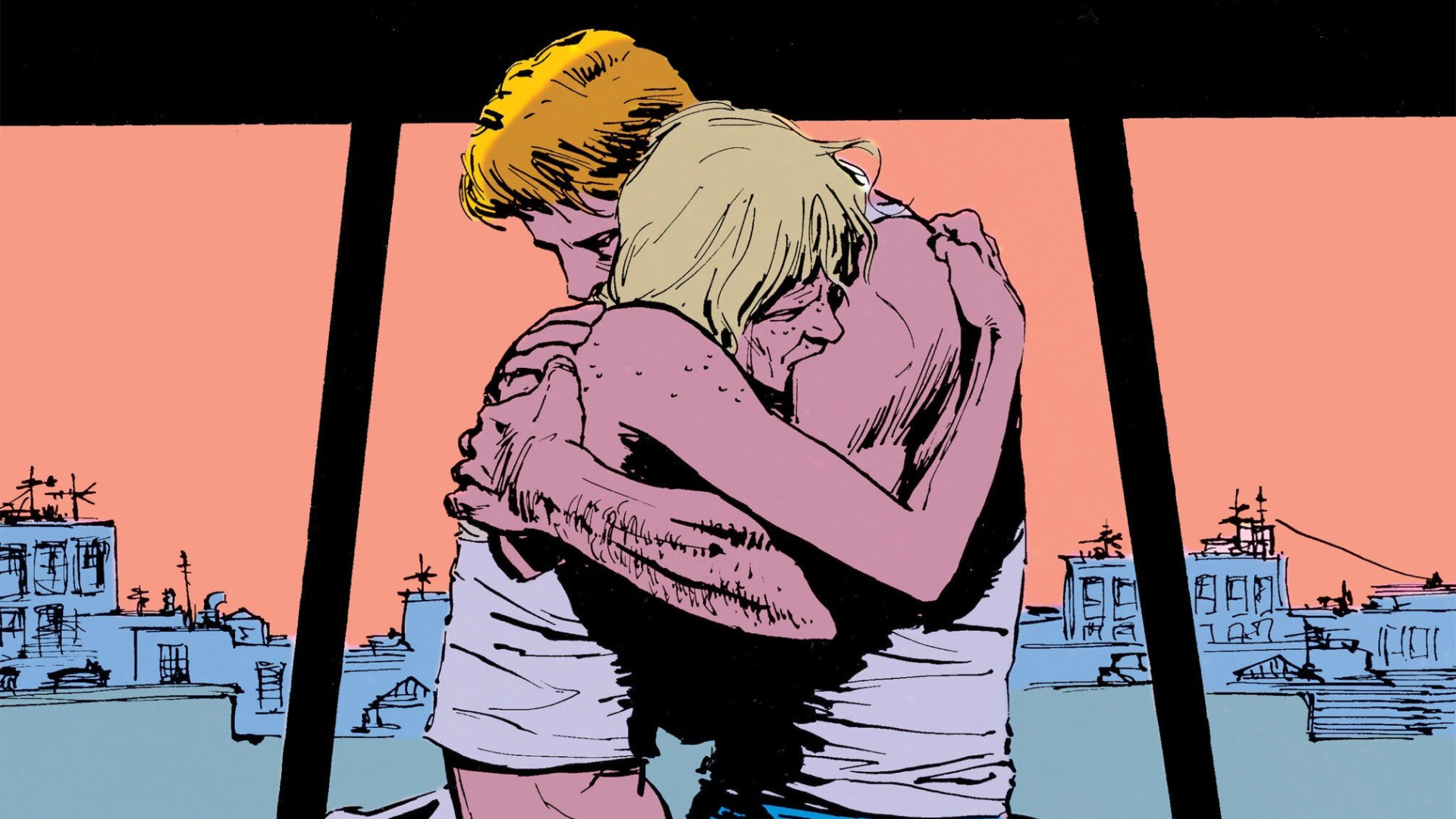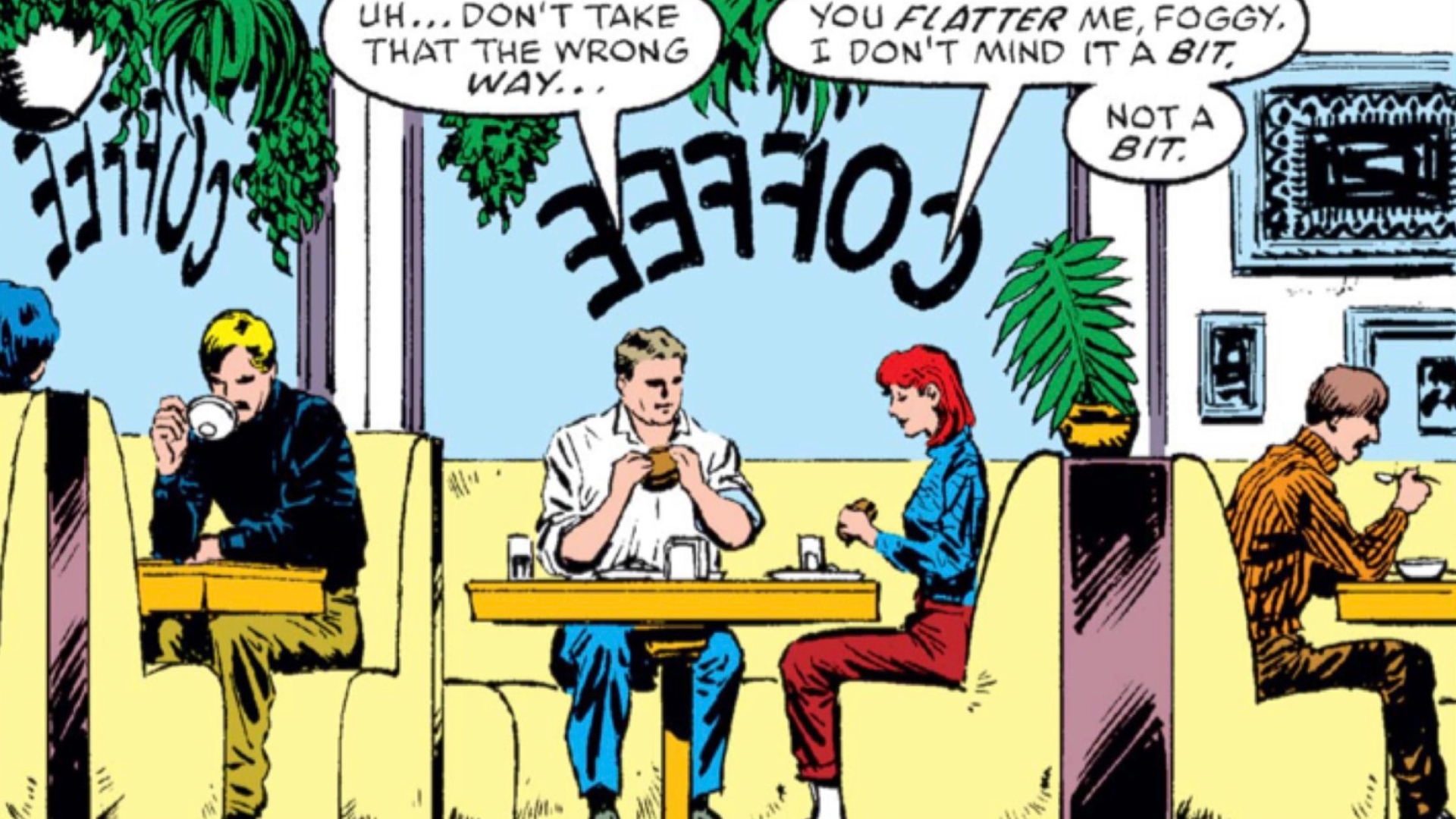Why Marvel Comics' Daredevil: Born Again may be difficult to adapt to the MCU
Frank Miller's original comic book storyline will likely see significant changes for Marvel Studios' Disney Plus version

The in-development and highly-anticipated Disney Plus streaming series Daredevil: Born Again shares a name with one of the most iconic Daredevil comic book stories of all time: Born Again, the 1986 arc written by Frank Miller - one of the genre's most iconic figures - and drawn by David Mazzucchelli.
MCU and Marvel Comics fans don't yet know how closely the Marvel Studios adaptation will skew to the comics. But many observers familiar with the source material would likely agree a very faithful adaption would invite criticism in 2024, particularly considering the more comedic version of Daredevil that MCU readers were introduced to in She-Hulk: Attorney at Law and the series' place on the more family-friendly Disney Plus.
Arguably Miller and Mazzucchelli's most famous work on the Daredevil series, Born Again effectively ruins Matt Murdock's life, forcing him to pick up the pieces and start over - not only in his civilian life, but in his vigilante duties as the Devil of Hell's Kitchen.
This leads to a new chapter in Matt Murdock's career as Daredevil, but not before pushing him to his absolute breaking point - mentally, physically, emotionally, and spiritually. It's potentially very heavy subject matter, particularly for the happy-go-lucky Matt Murdock sparking up a cross-country romance with Jennifer Walters on Disney Plus.
Although Daredevil: Born Again is a widely celebrated comic book arc for how it pushes Matt and then barely pulls him back from the brink, the comic is also undeniably a product of its time, particularly in how it treats its female characters. Some plot points that might not have seemed unusual or attracted criticism in the late '80s would almost certainly be met with significant pushback in 2024 based on ever-evolving social norms - to say nothing of how far some of the subject matter differs from the general, established tone of the MCU.

The impetus of Daredevil: Born Again is former Nelson & Murdock secretary and Matt's ex-girlfriend, Karen Page, hitting rock bottom when she develops a drug addiction after her brief acting career fizzles out. She sells Daredevil's civilian identity in exchange for a shot of heroin in Daredevil #227, and that information is then sold to Kingpin, who uses it to destroy Matt's life.
If that sounds little to nothing like the Karen Page Netflix fans know from the Daredevil streaming series - even with her dark backstory revealed during season 3 - this turn was just as much a surprise for comic readers in 1986. Granted, it had been a few years since Karen had regularly appeared in the pages of Daredevil. But even at the time, the storyline was jarring, and ultimately led to not just Karen's downfall, but Matt Murdock's - with the blame pinned squarely on Karen.
Get the best comic news, insights, opinions, analysis and more!
Perhaps more troubling, readers of Daredevil chronologically have no idea how she gets to this point; they only see the end result of her becoming humiliated, beaten down, and desperate, all seemingly in story service to the rivalry between Wilson Fisk and Daredevil. This arguably removes any impetus for readers to care about Karen, her struggles, or her motivations, not to mention demonizing both addiction and sex work in the process.
Then Karen is nearly killed not just once, but twice in Born Again, and she also survives on-panel abuse. For many of today's comic book readers, Karen's fall from grace is a textbook example of the 'Women in Refrigerators' trope, a term coined by comics writer Gail Simone in 1999 to describe women in fiction who are sacrificed or hurt to further the narratives of their male counterparts.
Simone coined 'Women in Refrigerators' the same year Karen Page was killed off in Daredevil #5, written by Kevin Smith and drawn by Joe Quesada and Jimmy Palmiotti. In that issue, Bullseye attempts to kill Daredevil and Karen steps between them, then dies in Matt's arms. One could even argue that her 'fridging' began in Born Again, and continued for an entire decade.

And in the cold light of 2022, Karen isn't the only woman in Daredevil: Born Again who qualifies for the 'Fridging' trope, as many of the developments in the story arc come at the expense of the women in Matt Murdock's life.
There's Glorianna O'Breen, Matt's girlfriend at the start of the arc, who dumps him for his best friend Foggy Nelson just as Karen betrays him. And then there's Matt's estranged mother, Sister Maggie, who nurses Matt back to health after a particularly vicious attack by the Kingpin - only to lie to him about the fact that she's his mother, breaking Matt's heart and his trust once again.
It's hard not to identify a pattern of betrayal by the women in Matt's life in Daredevil: Born Again as one of the story's driving forces, which again, would likely face more outspoken criticism by modern readers' standards than it did in the decade it was originally published. However, as noted above, the '80s were a different time - particularly for superhero comics, which were entering an edgy, more 'adult' phase for the first time in the medium's history.
The choices Miller and Marvel Comics editorial made at the time are a topic for another day, but those are choices Marvel Studios will have to wrestle with as the Born Again writers' room gets up and running this year and next. Significant changes are likely to be made.
In addition to the takes on the women in DD's life, the original Born Again story also has controversial head-on takes about addiction, sex work, religion, and more. These will very likely require some serious reconsideration through modern eyes, in balance with how the story ultimately serves Matt Murdock in his journey to be a better Daredevil.
Daredevil: Born Again will stream on Disney Plus in 2024.
Kingpin is one of the best Daredevil villains of all time.

Samantha Puc (she/they) is an editor at Newsarama and an avid comics fan. Their writing has been featured on Refinery29, Bitch Media, them., The Beat, The Mary Sue, and elsewhere. She is currently pursuing a Master of Fine Arts degree in creative nonfiction at The New School.


